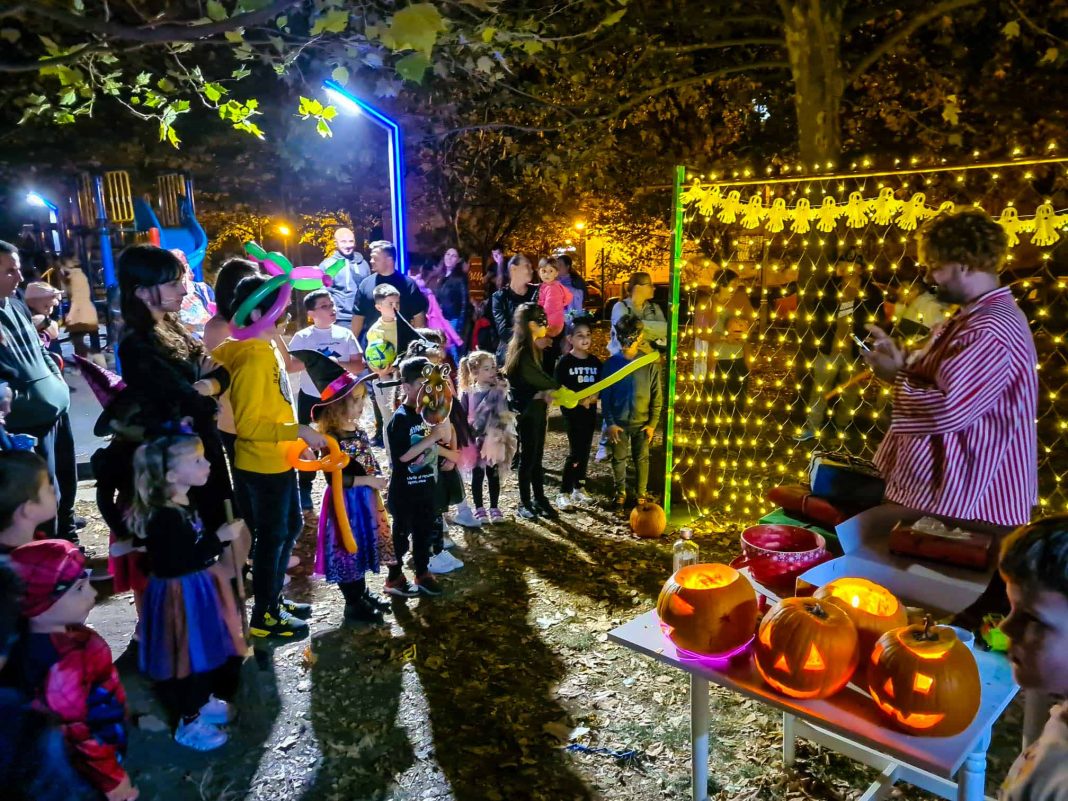This article was written for CityChangers.org by Eliza Barnea, Policy and Government Affairs Coordinator for IntreVecini, a Bucharest-based non-profit that empowers citizens to lead their own urban improvements. Using residents of urban condominiums as an example, she explains the important and very direct role that communities play in the green transition, and the need to undo decades of erosion of social cohesion to unlock this potential.
When I was in my early 20s, my grandfather, a former chemical engineer, showed me an old letter. It was neatly stacked away among the hundreds of organised dossiers that served as a testimony to his life’s achievements.
The letter was written by my grandparents’ neighbours and friends. Or at least that’s what they thought. But it wasn’t addressed to my grandfather.
In it, they brought to the recipient’s attention the day-to-day habits of my grandparents, questioning the means, and implicitly the legality, through which my grandmother could afford to buy art books, or my grandfather could travel abroad for work.
The recipient was the ‘Securitate’, the secret police of the Romanian Communist regime.
During those times, this could happen anywhere, everywhere: decades of having to whisper, to look over your shoulder, to unlearn the basic condition for a human to flourish – trust and cooperation.
The Decline of Community & the Need for Revival
In the thirty+ years that have passed since the fall of the regime, in Romania, as everywhere else, the links of trust between all of us have been further eroded by global trends.
Globalisation, urbanisation, and consumer culture, as well as the rise of the internet and social media, have all been silently deconstructing the natural bonds that link us. Today, we are more connected, yet more solitary than ever.
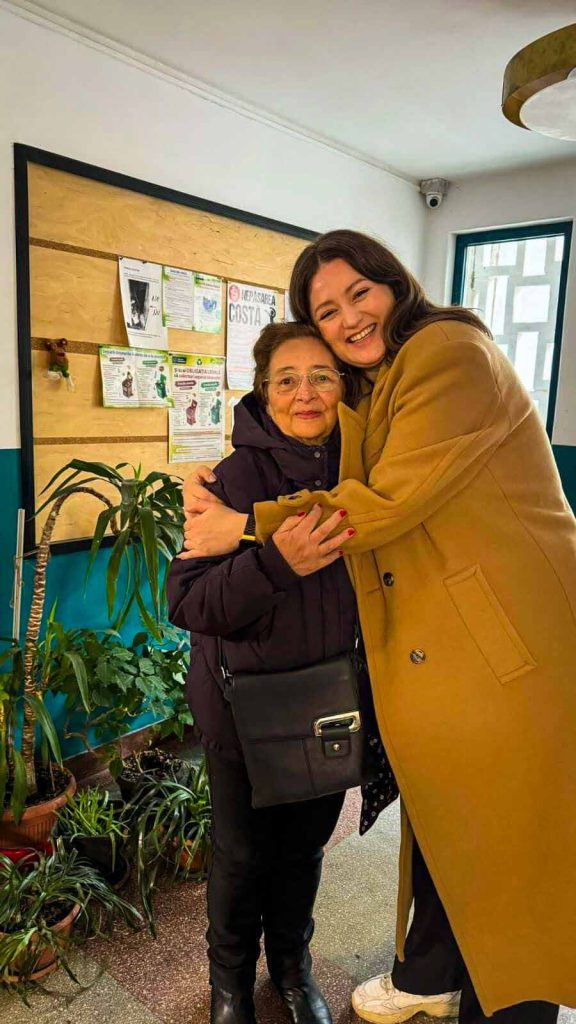
Today, this alienation – from each other, from our neighbours, and our community – affects all aspects of our lives. It contributes to increased polarisation, anti-social behaviour, the rise of anti-democratic sentiment, unsustainable resource use,[i] higher rates of anxiety or depression[ii] and an increased risk of early mortality.[iii]
Yet studies show again and again that social connectedness,[iv] community, and a sense of belonging[v] are the cornerstone of fulfilment, the antidote to much of our present predicaments; it is not for nothing that Maslow put them in his Hierarchy of Needs, right up there with water, food, and shelter. They are primary predictors of good health and social wellbeing.[vi]
Communities are also essential networks of support in the face of common global challenges, such as the COVID-19 pandemic or biodiversity loss. They provide a source of shared identity, promoting solidarity and positive action.[vii]
In the fight against climate change, communities are the foundational building block, inspiring people to adopt more sustainable behaviours, forming local resilience, and developing climate solutions tailored to specific local needs and realities.
A Rise in Solidarity
The obvious incongruence between the essential role of community in the green transition and the slow rupture of the communal social fabric is perhaps nowhere more obvious than in urban condominiums.
Think about it: millions of people living together in cities, who sleep within meters of each other and see each other in passing more often than family, yet who barely know each other’s names.
Cities are home to over 70% of the population of the EU and are responsible for 75% of global CO2 emissions. Yet neighbours in urban condominiums remain an untapped resource in advancing an equitable green transition, and improving, in the process, quality of life for all, children and seniors alike.
Hello, DearNeighbour
It is out of the need to explore this potential that IntreVecini was created in 2022 by a couple of young friends in Bucharest, Romania, in a stubborn intent to make the world – and their city – a better place to be.
Sabina Mihailescu and Mihai Toade-Pasti established DearNeighbour – to give it the English name – with the aim to transform condominium owners’ associations into sustainable communities and create community leaders that drive climate action from the grassroots.
What started as a newly founded NGO has rapidly turned into a complex support network.
In practical terms, sponsorship from private companies and grants (e.g., Climate Reality and Funky Citizens) enables DearNeighbour to support owners’ association with funding of up to a €15,000 to:
- co-design and implement 10 sustainable community development activities throughout the year.
- install PVs (solar panels) on their building to become prosumers – producers and consumers of their own electricity.
Aside from financing new communities, we also support existing ones to broaden their impact. Neighbours are encouraged to build bridges, to reach out further than their own block of flats, and to engage other neighbouring owners’ associations, local businesses, local NGOs, and public authorities to participate.
Activities are thought up by and for community members. It’s a guided process that starts off with a toolkit for identifying community needs and a community-building workshop, all developed by the DearNeighbour team. Every community is accompanied by a local community catalyst, who walks them through the process and helps them address inevitable roadblocks.
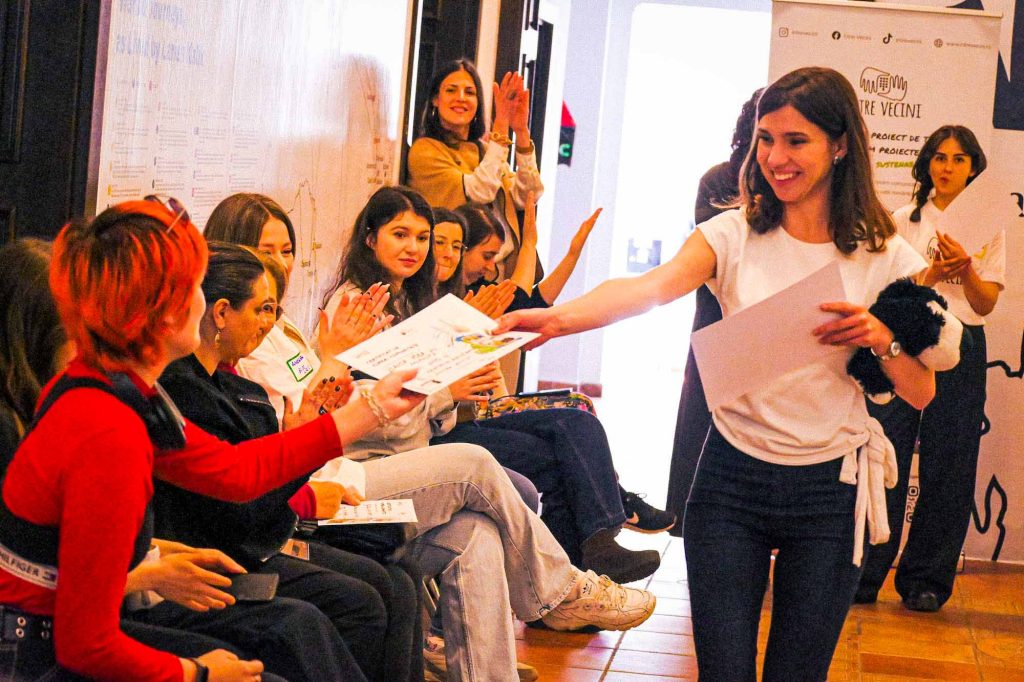
This is reinforced with a mix of online resources for sustainable community building, policy work, and government engagement. These are designed to: improve the life of citizens living in condominiums; facilitate their involvement in the green transition; and diversify funding streams.
In the long-term, DearNeighbour’s aim is to empower communities to become autonomous and engaged in their effort to consolidate their social fabric and be drivers of change. In other words, to reach a point where our very raison-d’etre is no longer valid.
Impact: From Neighbour to Change-Maker
In reality, what started off as a bit of a gamble is slowly becoming a movement – an Operating System for Change – with communities at the frontline of the transition to renewable energy in their cities.
The need for social connectedness in urban blocks of flats turned out to be a winning bet, attracting interest from local authorities, private companies, artists and creative industries, journalists, and sociologists alike. As a result, DearNeighbour has gone from being the “What if?” of two people to a 17-people organisation in only 2 short years. This includes experts in community development, policy, and energy, facilitators, communicators, architects, and anthropologists.
Already seven communities and more than 2,000 neighbours have come together to fulfil a range of improvements in their neighbourhood, like:
- planting flowers in their buildings’ garden
- collecting and donating clothes they no longer wear
- installing bike racks
- building tiny houses for stray cats
- arranging community film screenings for kids
- setting up communal composters
- recycling water and learning about responsible water management
- organising intergenerational events
- building community libraries
- creating a “neighbour’s card”, offering discounts to businesses in the neighbourhood.
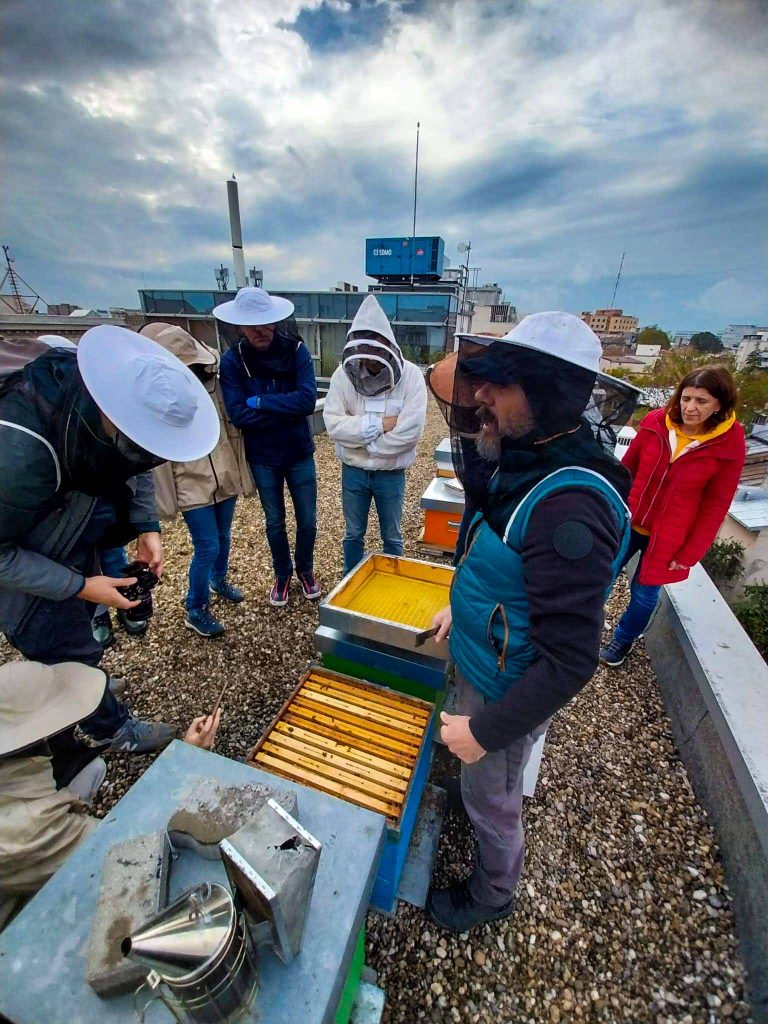
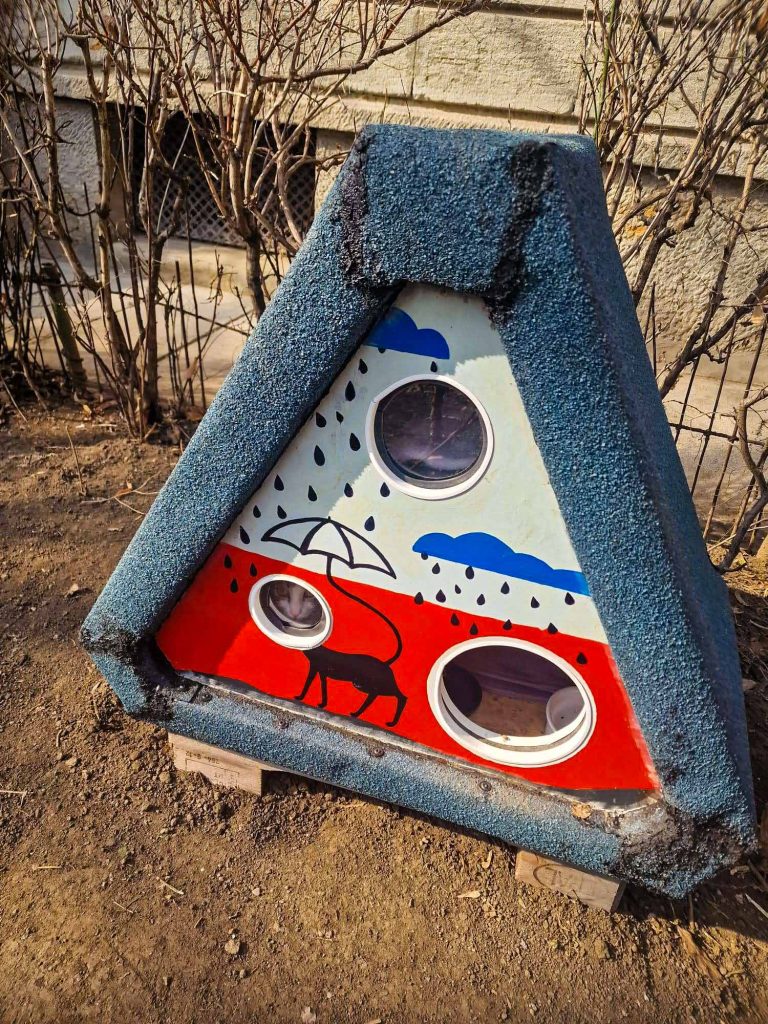
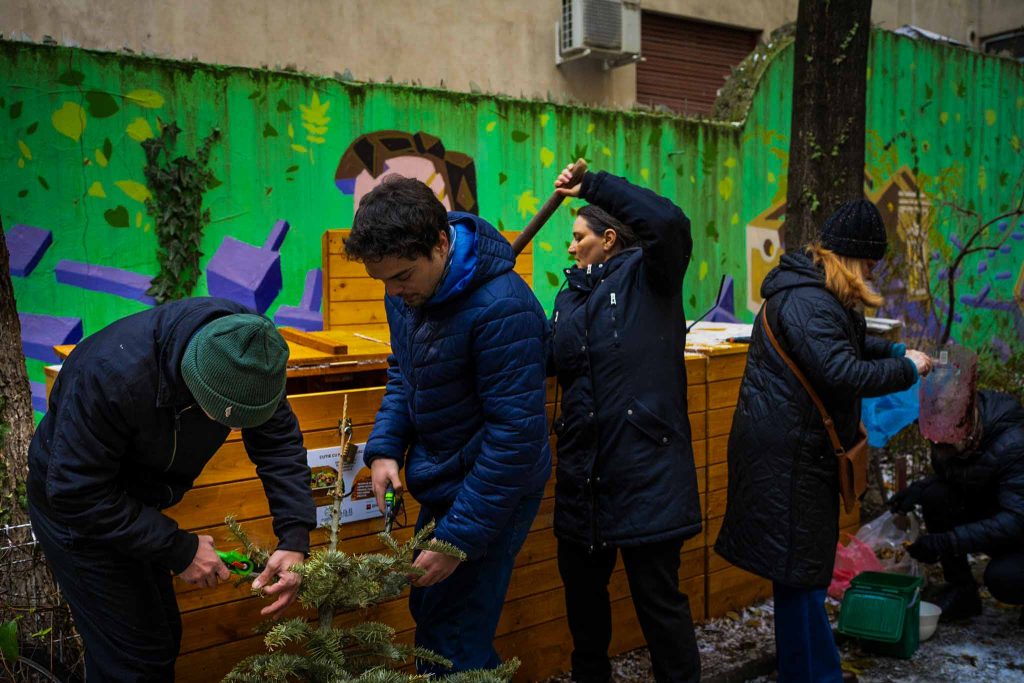
Individualism and mistrust remain the main obstacles that we grapple with, but we cross new frontiers every day. In only a few short months, neighbours went from only saying “Hello” on the staircase to sharing individual joys and powering collective action.
From Good to Better
A national call offering to finance the initiative in 15 more communities ran in early 2024, receiving more than 100 applications from all over the country. By the end of 2025, we aim to have a DearNeighbour community in each of the 42 counties of Romania.
Moreover, Bucharest District 2 Town Hall has picked up the DearNeighbour model, as part of its participation in the EU Mission for 100 climate-neutral and smart cities by 2030. It too will offer grants for NGOs working with local owners’ associations to install renewable energy technologies and implement activities centred on sustainability.
In parallel to activities in Romania, we will take this model to the international level, as we believe that community is a common good, a red thread across cultures and borders.
Be it about more sustainable management of resources, greener mobility, more accessible housing, or friendlier public spaces, the DearNeighbour mission shows that a sense of community fosters ownership and participation – even among less empowered citizens – and that collective action trumps individual interest.
We believe that transforming our neighbourhoods into ecosystems of belonging for community and nature is the starting point and the end game of a just, green transition. We’re here to help communities get started, wherever they may be.
If anyone is interested in making DearNeighbour a reality in their city, we urge them to reach out or join our mailing list.
[i] Schultz, A. E., & Wright, K. P. (2022). The Negative Effect of Low Belonging on Consumer Responses to Sustainable Products. Journal of Business Ethics.
[ii] Cuccu, L., & Stepanova, E. (2021). Loneliness & social and civic behaviours. JRC Technical Report.
[iii] Holt-Lunstad, J., Smith, T. B., Baker, M., & Stephenson, T. H. (2015). Loneliness and Social Isolation as Risk Factors for Mortality: A Meta-Analytic Review. Perspectives on Psychological Science.
[iv] Martino, J., Pegg, J., & Frates, E. P. (2017). The Connection Prescription: Using the Power of Social Interactions and the Deep Desire for Connectedness to Empower Health and Wellness. American Journal of Lifestyle Medicine.
[v] Rogge, N., Theesfeld, I., & Strassner, C. (2018). Social Sustainability through Social Interaction—A National Survey on Community Gardens in Germany. Sustainability.
[vi] House, J. S., Landis, K. R., & Umberson, D. (1988). Social Relationships and Health. Science.
[vii] Bowe, M., Wakefield, J. R., Kellezi, B., Stevenson, C., McNamara, N., Jones, B. A., . . . Heym, N. (2021). The mental health benefits of community helping during crisis: Coordinated helping, community identification and sense of unity during the COVID‐19 pandemic. Journal of Community & Applied Social Psychology.

